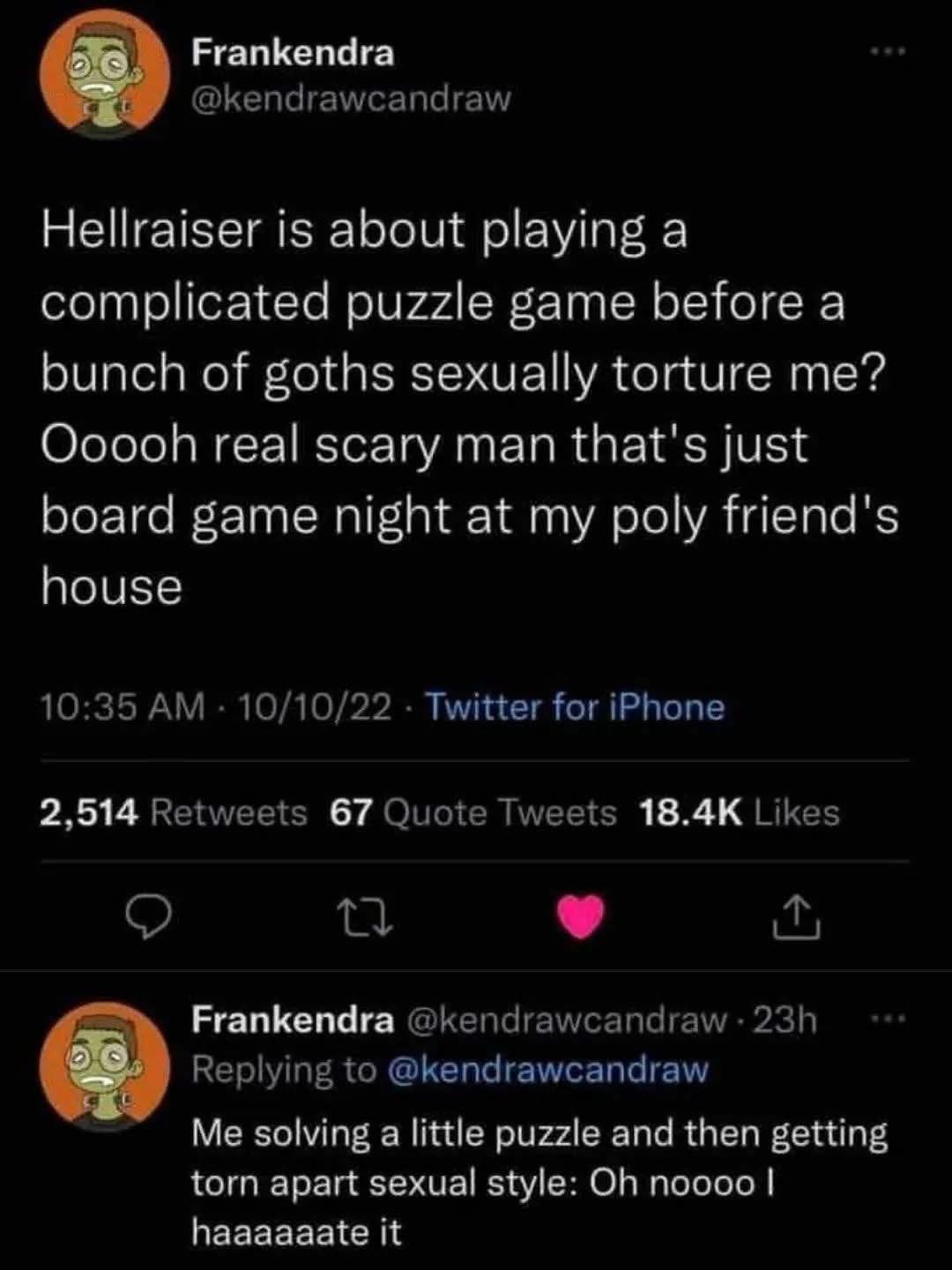Jesus wept but uncle frank orgasmd
196
Be sure to follow the rule before you head out.
Rule: You must post before you leave.
Other rules
Behavior rules:
- No bigotry (transphobia, racism, etc…)
- No genocide denial
- No support for authoritarian behaviour (incl. Tankies)
- No namecalling
- Accounts from lemmygrad.ml, threads.net, or hexbear.net are held to higher standards
- Other things seen as cleary bad
Posting rules:
- No AI generated content (DALL-E etc…)
- No advertisements
- No gore / violence
- Mutual aid posts are not allowed
NSFW: NSFW content is permitted but it must be tagged and have content warnings. Anything that doesn't adhere to this will be removed. Content warnings should be added like: [penis], [explicit description of sex]. Non-sexualized breasts of any gender are not considered inappropriate and therefore do not need to be blurred/tagged.
Also, when sharing art (comics etc.) please credit the creators.
If you have any questions, feel free to contact us on our matrix channel or email.
Other 196's:
Clive Barker got the inspiration from the gay kink scene. It was a case of literally “you know, you could probably make a cool horror story from this”
I mean, that seems like a kind of reductive way to describe the sublimely intimate ways that Hellraiser engages with the anxieties and fears of queer culture, and especially the queer culture of the late eighties.
Clive Barker is the best writer I've ever read. The prose is immaculate. His movies are hit or miss, with Hellraiser likely being his best. If anyone has ever been on the fence about reading his novels, I would encourage you to give them a shot. Barker has this insane writing ability where he can create the most disturbing scenes I have ever read, but it's written so well that I won't even notice it's fucked up until I get to the end of the chapter. At that point I just put it down and stare off into space for a while. Barker is one of a kind. I wish I could read his books for the first time all over again.
And the disturbing scenes and themes in his writing are never gratuitous, they always have an extra layer to add, usually in the form of societal critiques.
